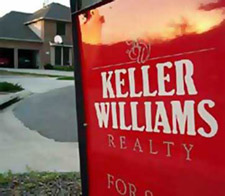 Home prices in the New York area ticked up slightly over the last year but increased at a slower rate than 19 other major metropolitan markets in the country, according to a new report released on Tuesday. The S&P CoreLogic Case-Shiller 20-City Composite index notched a 5 percent year-over-year increase in July led by big gains in real estate values in the Pacific Northwest, specifically Portland and Seattle. The New York region, including northern New Jersey, saw home prices rise just 1.7 percent over that same time frame, the weakest growth among all of the cities included in that index. The Washington, D.C., area's rise in home prices was the second-worst at 2 percent year-over-year.
Eight of the 20 cities in the index experienced a 6 percent or more growth in home prices over the last year. "Given that the overall inflation is a bit below 2 percent, the pace is probably not sustainable over the long term," David M. Blitzer, managing director and chairman of the Index Committee at S&P Dow Jones Indices, said in a statement. The 20-city index remains about 7.6 percent below the peak it hit in 2006, making home prices today about equivalent to home values in the summer of 2005. Home prices in the New York metropolitan area are nearly 15 percent below their 2006 peak. Real estate values in the area are now about where they were near the end of 2004. A national index that includes all nine U.S. census divisions is just 0.6 percent below its 2006 peak. Svenja Gudell, chief economist for Zillow, attributed gains in home prices nationally to "solid gain in incomes," among other factors, saying in a statement that "for the first time in recent memory, income growth is keeping pace with and even slightly exceeding home value growth nationwide." Census numbers released earlier this month show median household income rose 5.2 percent nationwide in 2015. New Jersey, however, didn't fare as well as the rest of the nation. The Garden State only saw a 0.3 percent in median household income from 2014 to 2015. Gudell also noted that "incomes are so far behind that they need to do a lot of catching up before homes become more affordable, especially for those at the bottom of the income distribution and in the country's most expensive markets." Source: NJ.com
0 Comments
Leave a Reply. |
Tress RealtyTress Realty Group compiles some of the best real estate news, tips, and information for buyers, sellers and investors. Archives
April 2020
Categories
All
|
Home
Use of the information and data contained within this site or these pages is at your sole risk. If you rely on the information on this site you are responsible for ensuring by independent verification its accuracy, currency or completeness. It is provided “as is” without express or implied warranty.
Some properties which appear on this web-site may no longer be available because they are under contract, have been sold or are no longer being offered for sale. Images uses for navigation may be for properties in different towns, and are not intended to be considered anything other than representative of the types of houses that may be found in a particular municipality. All data and/or search facilities on this site are for consumer's personal, non-commercial use and may not be used for any purpose other than to identify prospective properties that consumers may be interested in purchasing.
Tress Realty Group cannot guarantee the accuracy of the IDX/MLS data created by outside parties. Tress Realty Group further assumes no responsibility for any misleading content or incorrectly listed information due to such negligence. All ancillary information presented on this web-site is not guaranteed and should be independently verified by the users of this site. Tress Realty Group makes no warranty, either expressed or implied, as to the accuracy of the data contained within or obtained from this web-site.
Tress Realty Group accepts no liability for any interference with or damage to a user’s computer, software or data occurring in connection with or relating to this Site or its use or any website linked to this site. Further, Tress Realty Group has provided Hypertext links to a number of sites as a service only. This should NOT be taken as implying any link between us and those various organizations or individuals.
Disclaimer: this website may be supported by ads and participation in affiliate programs. We may earn a commission when you click our links. The information included in this post is for informational purposes only and should not be taken as legal or financial advice.
Site copyrighted by Tress Realty Group LLC © 2016-2022, all rights reserved.

 RSS Feed
RSS Feed